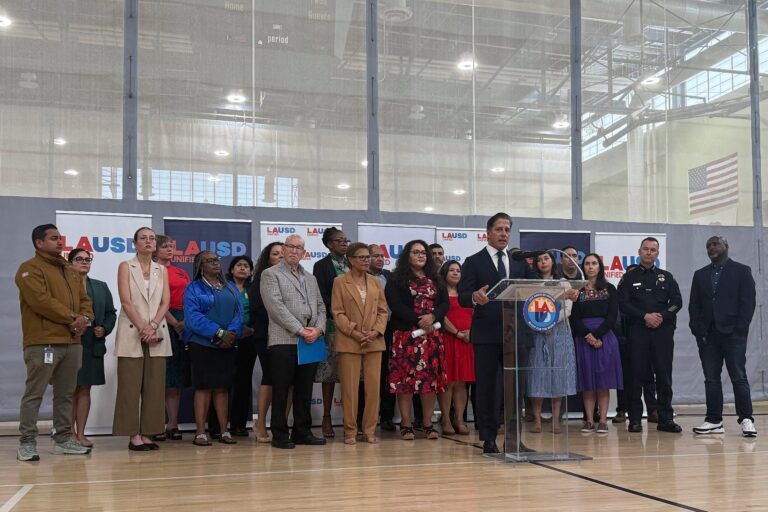As immigration enforcement efforts intensify across the United States, schools find themselves on the frontline of a complex and often contentious issue. The Brookings Institution’s latest analysis sheds light on the potential impacts these policies could have on students, families, and educators nationwide. With immigration status increasingly influencing the educational environment, school leaders face critical decisions about how to protect vulnerable communities while navigating legal and political challenges. This article explores what consequences may arise from heightened immigration enforcement in schools and outlines strategies education leaders can adopt to support students and uphold equitable learning environments.
Immigration Enforcement Impact on Student Attendance and Wellbeing
Heightened immigration enforcement has led to significant disruptions in school attendance, particularly among students from immigrant families. Fear of raids, detentions, and deportations creates a pervasive climate of anxiety, causing many children to miss school or avoid it altogether. This attendance decline not only sets back academic progress but also fragments the social fabric vital to a nurturing school environment. Research indicates that even the threat of enforcement can trigger absenteeism spikes, disproportionately affecting communities with mixed-status families where parents or siblings may be targeted.
Beyond attendance, the psychological toll on students is profound. Exposure to immigration enforcement fosters chronic stress, which negatively impacts mental health, concentration, and overall well-being. Schools often become sites of trauma as students struggle with insecurity about their family’s stability. To address these challenges, education leaders can implement culturally responsive support systems, including:
- Wellness programs focused on trauma-informed care
- Safe reporting policies that protect student privacy
- Community engagement initiatives to build trust with immigrant families
| Impact Area | Observed Effect | Suggested Response |
|---|---|---|
| Attendance | Increased absenteeism | Safe passage policies for affected students |
| Mental Health | Stress and anxiety | Access to counseling and peer support groups |
| Community Trust | Distrust in authorities | Transparent communication and engagement |
Legal Challenges Facing Schools Under Increased Immigration Policies
Schools across the United States face mounting legal complexities as immigration enforcement intensifies, straining their ability to ensure safe and equitable learning environments. One major challenge is the interpretation and application of federal legislation such as the Family Educational Rights and Privacy Act (FERPA), which protects student information but often conflicts with demands from immigration authorities seeking access to records. Additionally, ambiguous state and local policies create uneven protections, placing school administrators in difficult positions when responding to law enforcement inquiries. This uncertainty not only complicates compliance but also risks infringing on the constitutional rights of students and families.
Beyond privacy concerns, educators must grapple with the impact of immigration policies on students’ attendance, enrollment, and overall well-being, all while navigating a shifting legal landscape. Schools may face:
- Mandated notification requirements that compel them to alert authorities about undocumented students.
- Liability risks if perceived to obstruct enforcement efforts.
- Challenges in providing services to students with irregular immigration status under laws like the McKinney-Vento Act.
The heightened enforcement climate pressures schools to balance compliance with legal mandates against their educational mission — protecting vulnerable students and fostering an inclusive atmosphere. Failure to strike this balance can lead to litigation, community backlash, or declines in student participation and performance.
Strategies for Education Leaders to Foster Safe and Inclusive Environments
Education leaders hold a pivotal role in shaping environments where all students feel secure and valued despite the complexities brought by immigration enforcement policies. To build trust, schools must implement clear communication channels that keep families informed about their rights and the school’s commitment to student safety. Encouraging cultural competence through professional development for staff ensures sensitivity towards diverse backgrounds, fostering respect and reducing stigma. Specific initiatives might include creating dedicated spaces for dialogue where students and families can express their concerns without fear, and collaborating with local organizations to offer resources tailored to immigrant communities.
Proactive measures can also be institutionalized through policy and practice adjustments. For example, schools can adopt a confidentiality protocol that limits sharing student information with immigration authorities, reinforcing the message that classrooms are safe havens. The following table outlines practical steps education leaders can take:
| Strategy | Action | Impact |
|---|---|---|
| Confidentiality Policies | Limit data sharing with immigration agencies | Increases family trust and student attendance |
| Cultural Competency Training | Regular staff workshops | Reduces bias and fosters inclusiveness |
| Community Partnerships | Collaborate with immigrant advocacy groups | Enhances support networks for students/families |
| Safe Spaces | Designate confidential counseling areas | Provides emotional support and empowerment |
Policy Recommendations for Balancing Enforcement and Educational Access
Key strategies recommended for education leaders include:
- Implementing comprehensive training for school staff on students’ legal rights and mental health support.
- Creating confidential protocols for sharing information, safeguarding student identities from unauthorized immigration inquiries.
- Advocating for local policies that decouple educational access from immigration status verification.
- Partnering with legal aid organizations to provide support and resources to affected families.
| Recommendation | Impact | Priority Level |
|---|---|---|
| Safe School Designation | Reduces enforcement disruptions | High |
| Staff Training | Enhances student support | Medium |
| Confidential Protocols | Protects student privacy | High |
| Community Partnerships | Improves family trust | Medium |
Future Outlook
As immigration enforcement policies continue to evolve, their impact on US schools remains a critical concern for educators, students, and communities alike. Understanding the potential consequences of increased enforcement—ranging from heightened anxiety among students to disruptions in educational access—allows education leaders to better navigate these challenges. By fostering inclusive environments, advocating for protective policies, and collaborating with local stakeholders, school administrators and teachers can play a pivotal role in mitigating the effects on immigrant students and ensuring that schools remain safe, supportive spaces for all children. As the national conversation on immigration unfolds, the actions taken within educational settings will be instrumental in shaping the futures of countless young learners across the country.







